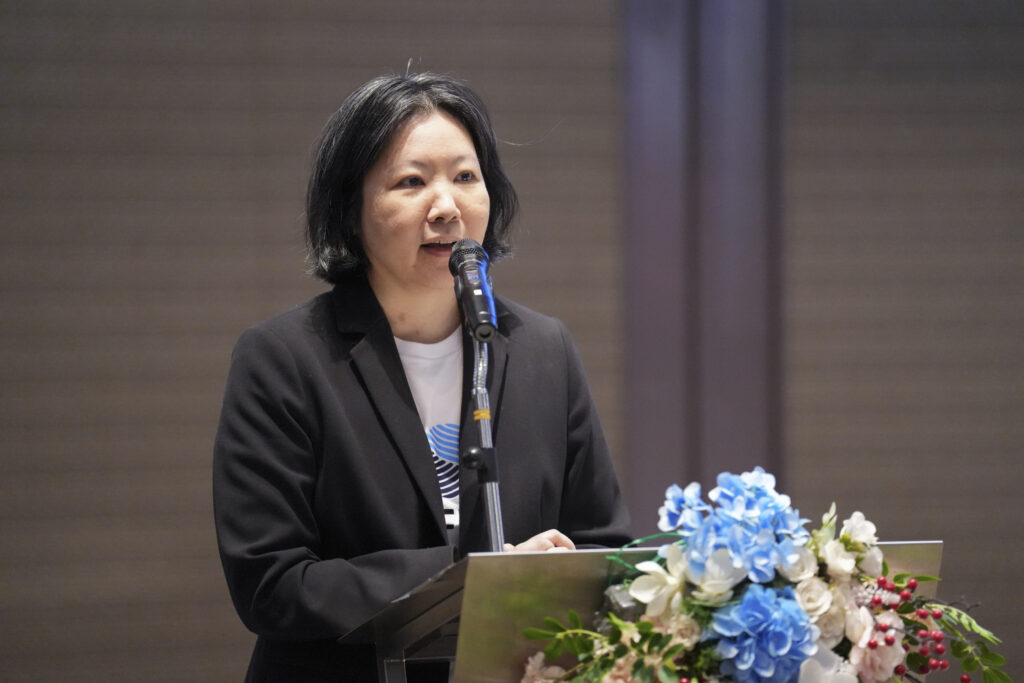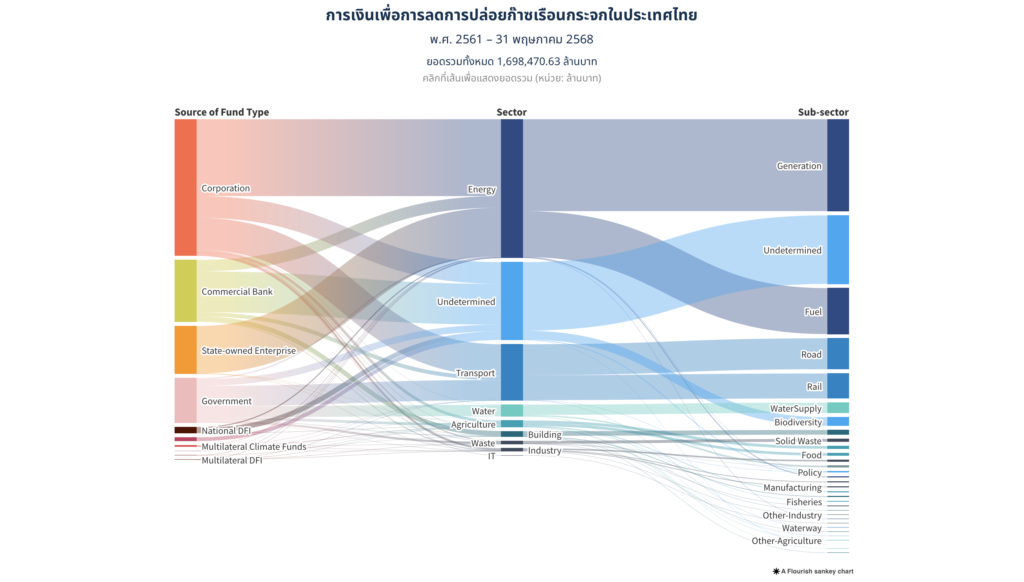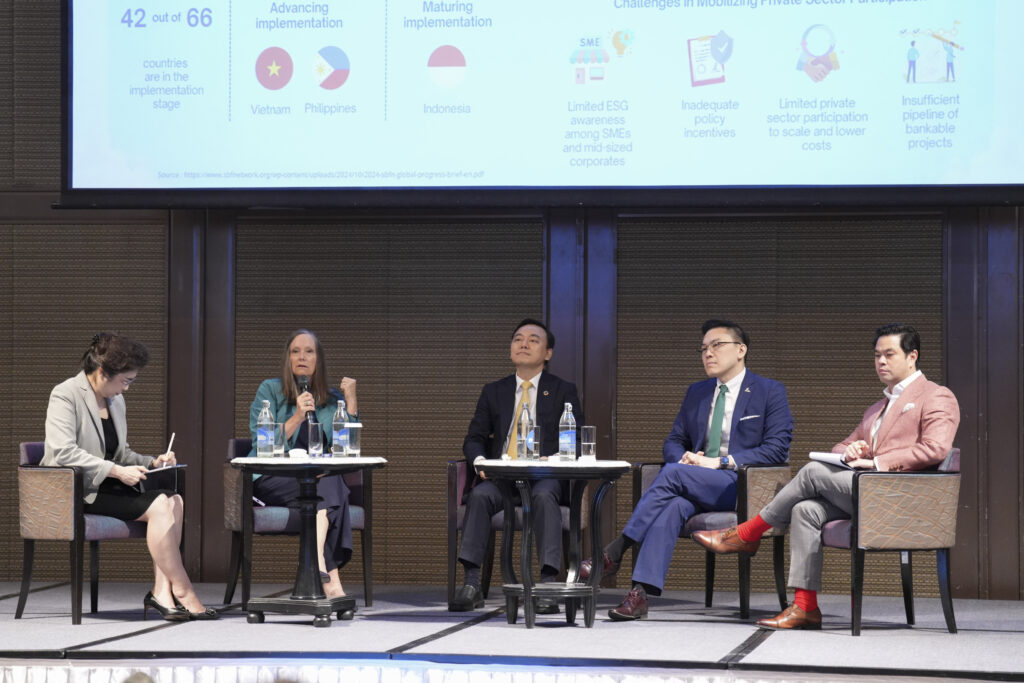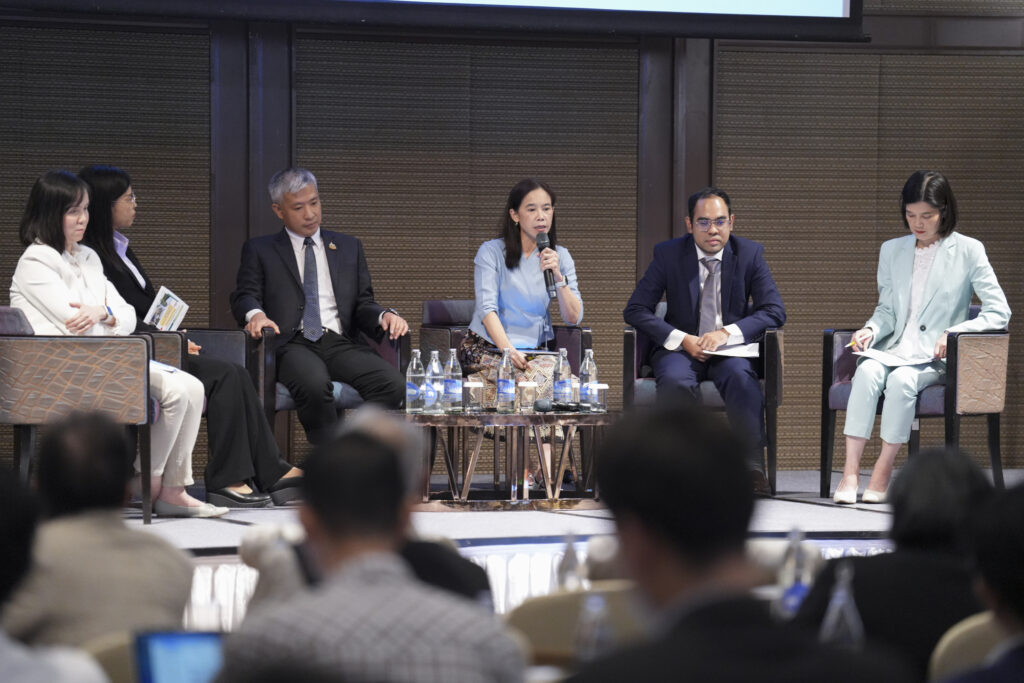Climate Finance Network Thailand (CFNT), the Thailand-based think tank promoting sustainable finance and advancing the country’s low-carbon transition, officially launched its landmark research report titled “Thailand Climate Finance Landscape 2025”, based on data from the inaugural Climate Finance Tracker, in Bangkok on 21 July 2025. The Climate Finance Tracker is the first tool of its kind in Thailand, which tracks financial flows related to climate change activities in the country.
The Climate Finance Tracker was developed to provide more insights into how financial resources are being mobilized to address the effects of climate change in Thailand. It is designed to reveal existing funding gaps and help spark collaborative action for climate change activities between the public and private sectors via greater data- and insights-sharing. The database of the tool will be continuously monitored and updated annually to ensure its continued comprehensiveness and relevance.

“Until now, Thailand lacked a comprehensive view of how much funding is being allocated for climate change response, particularly the sources of funds and their destinations,” said Sarinee Achavanuntakul, Managing Director, Climate Finance Network Thailand (CFNT). “With the Climate Finance Tracker, we hope to paint a clearer picture of the current climate finance flows in Thailand and catalyze more meaningful, collaborative action towards climate change activities—especially in the critical areas of greenhouse gas mitigation and climate change adaptation.”
Uncovering Thailand’s Climate Change Financial Flows
The event began with a presentation by Thanida Lawseriwanich, Head of Research, CFNT, who detailed the key insights gathered from the Climate Finance Tracker’s research. It highlighted that, over the past seven years, Thailand has invested at least THB1.7 trillion in greenhouse gas reduction activities. Notably, over two-thirds of this amount came from the private sector, spotlighting the sector’s proactivity and preparedness in embracing a greener economy. Meanwhile, funding from the public sector and state-owned enterprises was comparable in volume.

In terms of sectoral representation, energy received the largest share of funding—THB779,130.2 billion, or 45.71 percent of total funding—allocated to projects such as solar farms and biomass power plants. This was followed by transportation with THB315,122.4 billion, or 18.49 percent of total funding, which supports initiatives such as electric mass transit, electric vehicle (EV) charging stations, and expanding Bangkok’s metro networks.
The presentation also revealed that, as compared to the high activity in mitigation activities, climate adaptation efforts remain underfunded. Between 2020 and 2024, only THB148 billion was spent on such activities, highlighting the limited implementation of Thailand’s National Adaptation Plan.
Climate Mitigation Finance: Taking Stock and Looking Forward
CFNT’s research presentation was followed by a panel discussion about the importance and challenges of mobilizing funding for reducing emissions in Thailand. The panelists included Dr. Melinda Good, Division Director for Thailand and Myanmar, World Bank; Dr. Roong Mallikamas, Deputy Governor Financial Institutions Stability, Bank of Thailand; Dr. Karin Boonlertvanich, Executive Vice President, Kasikornbank Public Company Limited; and Dr. Yunyong Thaicharoen, Chief Economist and Sustainability Officer, Siam Commercial Bank Public Company Limited.

The panel—moderated by Dr. Wit Sittivaekin—unanimously agreed that data, innovation, and collaboration are critical drivers for transitioning Thailand’s financial system toward a low-carbon economy. Here, the government and regulatory bodies, supported by international cooperation, play crucial roles in achieving Thailand’s carbon neutrality goals.
From Chaos to Resilience: Co-Designing a Climate Adaptive Future
A second panel discussion was held in the afternoon, spotlighting the impacts of climate change, urban design, and the importance of using data effectively in policymaking. The panelists comprising this session included Dr. Kannika Thampanishwong, Section Head, Puey Ungphakorn Institute for Economic Research (PIER); Dr. Sitang Pilailar, Specialist in Water Management, Kasetsart University; Dr. Naim Laeni, Specialist in Spatial and Urban Planning, Thammasat University; as well as two senior officials from the Bangkok Metropolitan Administration (BMA)—Dr. Witoon Apisitpuvakul, Director of Strategy and Evaluation, and Woranuch Suaykakhaw, Deputy Director of the Environment Department.

Moderated by Veenarat Laohapakakul, the panel all agreed that, as the impacts of climate change become more severe, Thailand must be prepared both financially and infrastructurally to adapt effectively.
Beyond Urgency: The Ecosystem’s Duty in a Changing Climate
The event concluded with keynote speeches by senior-level representatives from the United Nations Environment Programme (UNEP) and the Department of Climate Change and Environment (DCCE) of Thailand.
In his address, Sudhir Sharma, Regional Coordinator, UNEP, stressed that data provided by tools such as the Climate Finance Tracker are fundamentally important for bridging knowledge gaps and mobilizing funding effectively, so that public and private funding strategies can better align with climate goals. Meanwhile, Dr. Kittisak Prukkanone, Director of the Division of Strategy and International Cooperation, DCCE, noted that the government plays an important role in establishing supportive ecosystems and mechanisms to facilitate the low-carbon transition. This includes creating legal instruments such as the Climate Change Bill and financial policies such as Green Climate Procurement.
- Learn more about the 2025 Climate Finance Tracker: www.climatefinancethai.com/tracker
- Download all presentation documents here:
